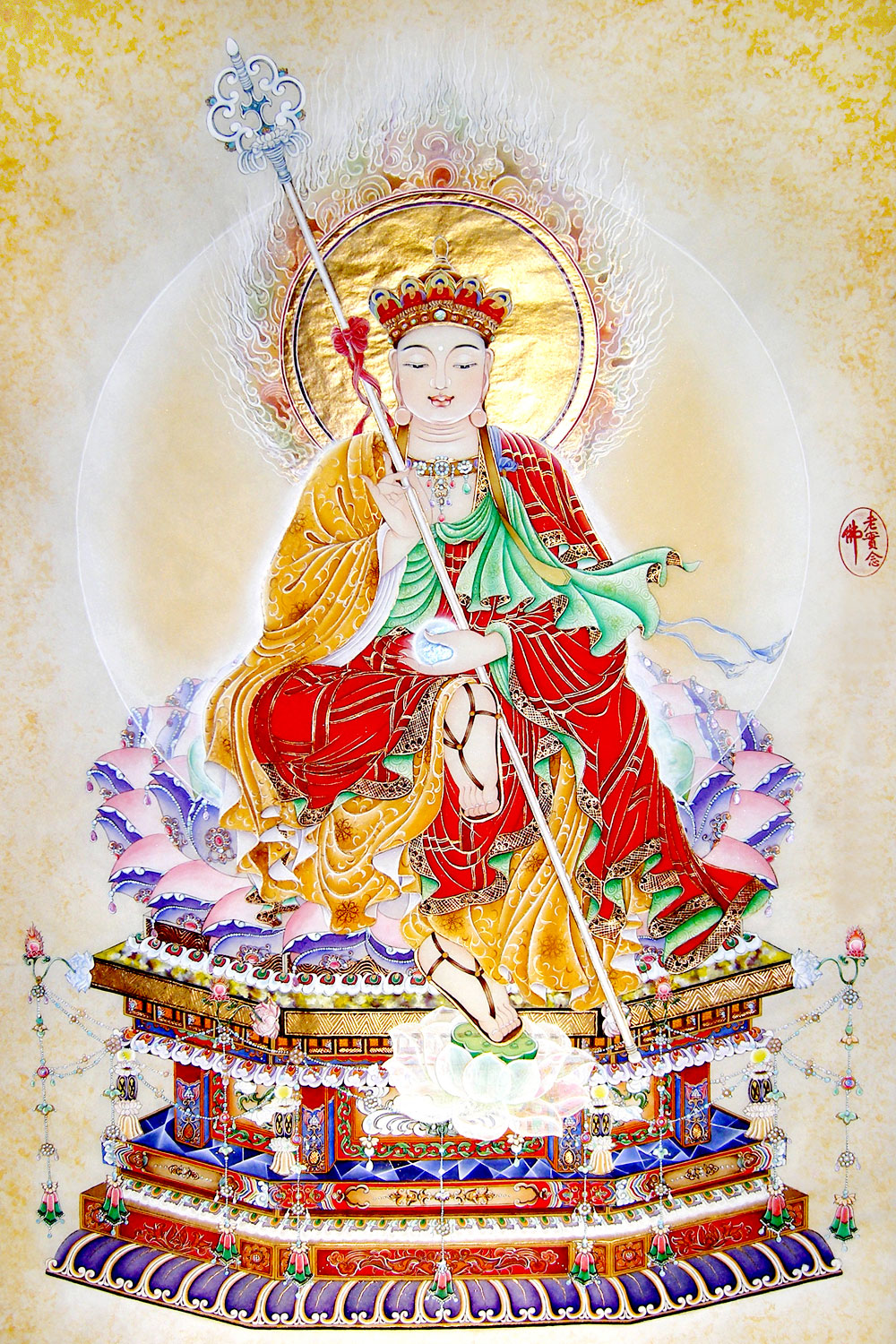 Because the fundamental nature of consciousness, of mind itself, is without characteristics, Zen Buddhism teaches signlessness. Ordinary activity, reflected in the lives of monks or villagers, fully embodies this signless teaching about mind. This is the “Treasury of the True Dharma Eye, whose true sign is signlessness, the sublime Dharma gate,” as taught in Zen’s founding legend by the Buddha.
Because the fundamental nature of consciousness, of mind itself, is without characteristics, Zen Buddhism teaches signlessness. Ordinary activity, reflected in the lives of monks or villagers, fully embodies this signless teaching about mind. This is the “Treasury of the True Dharma Eye, whose true sign is signlessness, the sublime Dharma gate,” as taught in Zen’s founding legend by the Buddha.
The “sublime gate” of signlessness is not at all empty of meaning. Traditionally, taking Zen’s signless path leads first to perceiving, then seeing through, reincarnation, the “wheel of birth and death.” What is quite profound is then inextricable from what is entirely ordinary. It is passages about the “ordinary,” where the difference between sacred and mundane is forgotten, that Zen literature takes on its peculiar flavor.
Below, I offer a few lines from a wonderful (but not untypical) passage of this type by Zen Master Luohan Guichen, who’s usually referred to as “Dizang.” Dizang was the teacher of Fayan (“Dharma Eye”), one of the foremost teachers of the Chinese Zen (Chan) tradition and founder of the Fayan (Japanese “Hogen”) Zen school.
Let me set the scene. In my mind’s eye, I see Dizang addressing his monks in a zendo at the center of the monastery. The bamboo shades that usually shutter the windows have been rolled up and spring sunlight shines into the hall. The monks are standing as Dizang enters to speak. He immediately sets about derailing the monks’ misguided conceptions about the Zen school and demolishing the pretentiousness of much religious teaching, including that of Zen:
You come here and use words like ‘tranquillity,’ ‘reality,’ ‘perfection,’ or ‘constancy.’ Worthy practitioners! What is this that you call ‘tranquil’ or ‘real?’ What is it that’s ‘perfect’ or ‘constant?’… Sounds and forms assault us every moment. Do you directly face them or not? If you face them directly then your diamond-solid concept of self will melt away. How can this be? Because these sounds penetrate your ears and these forms pierce your eyes, you are overwhelmed by conditions. You are killed by delusion. There’s not enough room inside of you for all of these sounds and forms.
Dizang continues,
‘Perfection.’ ‘Constancy.’ ‘Tranquillity.’ ‘Reality.’ Who talks like this? Normal people in the village don’t talk like this. It’s just some old sages that talk this way and a few of their wicked disciples that spread it around!
—Andy Ferguson
This post is part of author and scholar Andy Ferguson’s new “Consider the Source” series. As an old Chinese saying goes, “When drinking water, consider the source.”
This fall, Tricycle will be traveling to the source itself, China, in a special pilgrimage led by Ferguson and abbot of the Village Zendo Roshi Pat Enkyo O’Hara. Want to come with us? Click here for more information.
Ferguson is the author of Zen’s Chinese Heritage: The Masters and their Teachings, which is used widely by Western Zen teachers, and Tracking Bodhidharma, which offers a wealth of new information about the founder of Chinese Zen Buddhism.